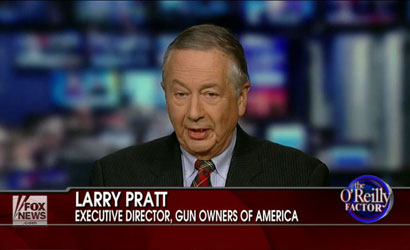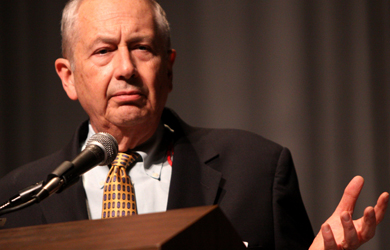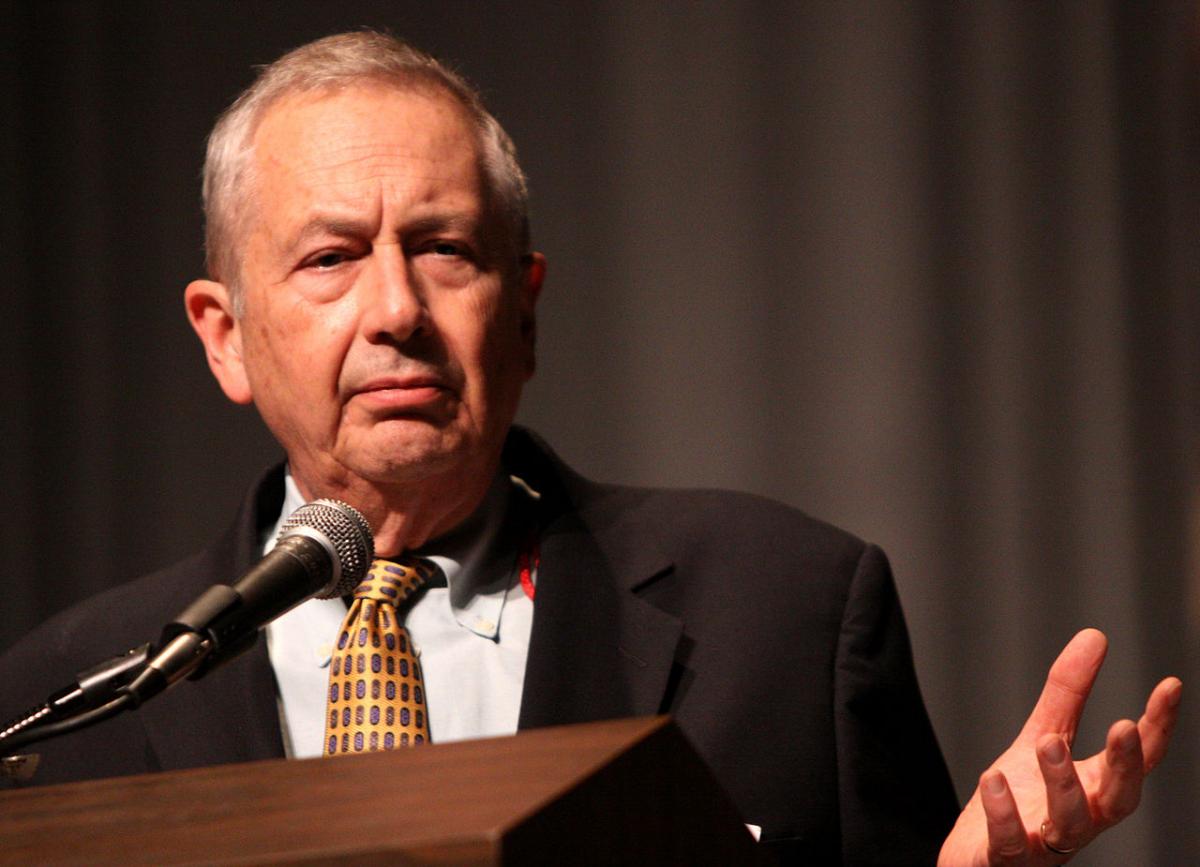Gun Owners of America director Larry Pratt is a big fan of the Constitutional Sheriffs and Peace Officers Association, a group of Tenther county sheriffs who have declared that they answer directly to the Constitution (or their interpretation of it), rather than to the federal government. Unsurprisingly, the organization and the movement it represents have grown substantially during the presidency of Barack Obama.
Pratt often praises the Constitutional Sheriffs in his speeches, and was a guest of honor at their annual convention last week, where he presented the “High Noon Award” to the Milwaukee County Sheriff who took out an ad urging people to arm themselves rather than calling 911. Pratt also presented the “Nullifier of the Year” award to Sheriff Denny Peyman of Jackson County, Kentucky, who has announced that he will not enforce federal gun laws in his county, warning that there would be a “bloodbath in our community when they come in to take guns.”
Pratt himself summed up the gist of the Constitutional Sheriffs movement when he told WND:
There is a misconception in our time that the court somehow is the arbiter of what is constitutional; that’s not true! Every official that raises their right hand and says they’re going to adhere to the constitution, seek to protect it to the best of their ability, ‘so help me God’ – that’s something that they’re all obligated to do.
The nullification movement is growing in popularity in conservative state legislatures – for instance, Kansas has passed a law declaring that “Any act, law, treaty, order, rule or regulation of the government of the United States which violates the second amendment to the constitution of the United States is null, void and unenforceable in the state of Kansas.”
The nullification concept dates back to South Carolina Sen. John C. Calhoun, who argued that if the federal government did not allow a southern states to “nullify” an 1828 tariff act, they would be within their rights to secede from the Union. Historian Cody Carlson explains, “The unspoken fear, of course, was that if the federal government could levy a tariff to profoundly alter the economy of the South, was the institution of slavery safe from federal interference? Could not the North, in the guise of instituting new economic policies, virtually prohibit slavery?”
David Gans of the Constitutional Accountability Center, via Steve Benen, explains why nullification has long been discredited:
Nullification was a 19th century theory, identified most closely with South Carolina Senator John C. Calhoun, based on the notion that the states created the Constitution and retained the power to determine whether the federal government complied with limitations on its power. This theory has been universally rejected throughout the course of American history by the courts as inconsistent with the Constitution. As the Constitution’s preamble makes clear, ‘We the People,’ not the states, ‘ordain[ed] and establish[ed] th[e] Constitution.’
The Constitution’s Supremacy Clause provides that federal law is the ‘supreme Law of the Land,’ and Article III of the Constitution gives to the federal judiciary the power to decide “all cases arising under the Constitution.’ States, thus, cannot simply declare that the acts of the federal government are null and void. But, despite the rock-solid arguments against nullification, state governments continue to press the idea that they have the power to treat certain federal laws as null and void. These arguments, while not new, have no basis in the Constitution.”






